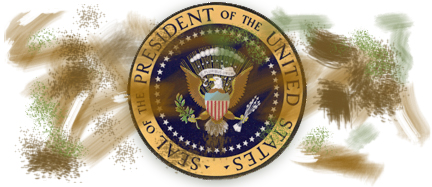 Welcome to the middle of October in the most bizarre political season I have ever experienced. In what has been a year where name-calling and innuendo have rocketed to new levels, it seems like there would be nothing new for the "October surprise” – a revelation about a candidate - be it true or false, that is leaked to the public so late in the political process that the candidate has no time to recover before the election. But alas! Just when you thought it couldn’t get any weirder, it has! One candidate is caught openly lying about her agenda, telling the public one thing and her wealthy donors another in (of all things) emails. The other candidate is caught degrading women in the vilest of terms in a video from a decade ago. In response, one candidate claims the other unfit for office because of his despicable comments, while the other candidate holds a press conference with several women the other candidate’s husband has been accused of abusing while she helped him cover it all up. One candidate claims that the leaks are fabrications of some foreign government trying to sway the election, as the other claims this is proof of her corruption. Do you think they are finished? Hold on to your seat, we have three more weeks of this to go!
Welcome to the middle of October in the most bizarre political season I have ever experienced. In what has been a year where name-calling and innuendo have rocketed to new levels, it seems like there would be nothing new for the "October surprise” – a revelation about a candidate - be it true or false, that is leaked to the public so late in the political process that the candidate has no time to recover before the election. But alas! Just when you thought it couldn’t get any weirder, it has! One candidate is caught openly lying about her agenda, telling the public one thing and her wealthy donors another in (of all things) emails. The other candidate is caught degrading women in the vilest of terms in a video from a decade ago. In response, one candidate claims the other unfit for office because of his despicable comments, while the other candidate holds a press conference with several women the other candidate’s husband has been accused of abusing while she helped him cover it all up. One candidate claims that the leaks are fabrications of some foreign government trying to sway the election, as the other claims this is proof of her corruption. Do you think they are finished? Hold on to your seat, we have three more weeks of this to go!
As crazy as the election process has been, there are some marketing lessons to be learned here. First, understand that what people hear in political ads they tend to believe whether it is true or not. This is especially true of negative items that are repeated often. If people hear something enough, it tends to stick. What political marketers do is to define catch phrases based upon what large segments of the voting public find distasteful. Phrases like "Special interest groups” or "wealthy donors” are based on reasons the electorate pool would vote against someone. In the marketing of your products and services, there are also reasons why your target market would reject you and your brands. What are those reasons? They were priced too high. The quality of the product was poor. They did not deliver on time. The company that sold it had lousy customer service. The guy who sold it to me over-promised and under-delivered… or closely related to it - the guy who sold it to me was hard to work with, insulted me, was never available, etc. Can you get away with calling your competition out for their incompetence in these areas, like the political candidates do? Probably not! However, in your marketing, you need to emphasize that you are the exact opposite of these things.
Another thing to learn from the political process is that words and perceptions matter. In this election cycle, taking a legal tax deduction has been spun to mean you are not paying your fair share of taxes and, thus, depriving everyone from the poor to the military of everything they deserve to get in government-paid expenditures. It is quite a leap to get from a legal tax deduction that is used by millions of tax filers, to cheating common Americans out of what they deserve, but there are people who hear this message and believe it. All of this is said to gain a competitive advantage. The same can be said about the words you use in marketing. What you say about your products and services in the form of tag lines and selling points are important. People will believe them. The difference between a politician and your brand is the politician can exaggerate (i.e. lie) and get away with it. You cannot. If you make a marketing claim, you have to back it up, so be certain you can.
We are not finished with the October surprises in politics. Take a close look at them when they happen, not for their political backhandedness, but more for the marketing ideas behind them. Use these to your competitive advantage.